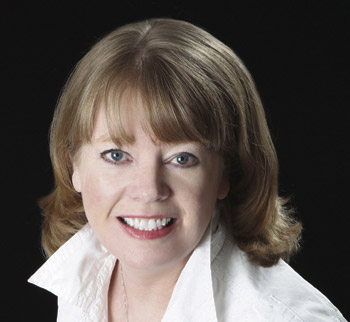The theme of sectarian violence often takes centre stage in Sharon McKay’s novels, and Enemy Territory, her latest one, faithfully conforms to this pattern.
“I have been writing about conflict for a young adult audience for years,” said McKay, referring to such previous books as Charlie Wilcox, Thunder over Kandahar and War Brothers.
Enemy Territory, set in contemporary Israel and the West Bank, is about two young teenagers, Sam, an Israeli Jew, and Yusuf, a Palestinian Arab, who find themselves sharing a room in Hadassah Hospital in Jerusalem after they are both badly injured.
Predictably enough, they are initially hostile to each other, but after deciding to run away from the hospital to embark on a midnight adventure in the Old City, they learn to respect their cultural and political differences and form a friendship.
“I wrote Enemy Territory because it was a huge challenge,” explained McKay, who was born in Montreal and now lives in Prince Edward Island. “I felt that everything written to date on the Arab-Israeli conflict presented one point of view or the other. I wanted to write a book that showed how young people perceive the conflict, and how it is possible for them to begin talking and understanding one another.”
Like some of her books, Enemy Territory, published by Annick Press in Toronto, is largely based on personal observation.
A stickler for details, McKay went to the Middle East to gather material, living with an Israeli in western Jerusalem and with a Palestinian in the West Bank as she methodically conducted research.
The Arab-Israeli dispute was not McKay’s first exposure to strife.
“I spent every summer from the age of 12 with my grandmother in Belfast, Northern Ireland, living between the Protestants of Shankill Road and the Catholics of Falls Road,” she said.
One of the first bombs to explode during the so-called “The Troubles” in Ireland, she recalled, went off near her aunt’s garden wall, flinging her and her grandmother out of bed.
Not surprisingly, McKay detects similarities between the Irish problem and the Arab-Israeli dispute.
“They come up in the point of view of children and teenagers,” she said. “It’s amazing how fast all kids can adjust to bombs and guns and security checks. Equally amazing is how children can accept adults’ explanations of conflicts without question.”
Nonetheless, Northern Ireland and Israel are different in some important respects, she added. “Northern Ireland is not surrounded by enemies on all sides. Nor did anyone ever suggest that we [the Irish], would be blown off the face of the earth.”
Before writing Enemy Territory, McKay produced Charlie Wilcox, a blend of fact and fiction turning on the experiences of her great uncle, a Newfoundlander, as an under-age soldier in World War I.
A trip to Afghanistan in 2009, under the auspices of the Canadian Forces War Artists Program, prompted McKay to write Thunder over Kandahar.
She wrote War Brothers, the story of African child soldiers, after talking to them in Uganda.
In addition, she has written on the Holocaust in The Whisperers Trilogy (with Kathy Kacer) and on Esther Brandeau, the first known Jewish person to live in New France, in Esther.
McKay believes that every Canadian, regardless of religion, has some kind of relationship with Israel, however tentative.
“It can be positive, negative, filled with love or animosity, but everyone has an opinion,” said McKay, who cried after reading Exodus as a teen.
“Israel became a country of my dreams and imagination,” she said. “To me, Israel is the gatekeeper of the civilized world as I know it. The West Bank was equally beguiling.”
Although Israel’s negotiations with the Palestinian Authority have broken down, she doubts whether the situation is hopeless.
“I have faith that the youth of Palestine and Israel will talk to each other using social media. And while the adults will cry, ‘They want to kill us/take our land,’ my hope is that kids will begin with ‘hello.’ It may be naive, but what is the alternative?
“No one ever imagined that there could be peace in Northern Ireland. My hope is that the day will come soon when the Middle East, too, will become a peaceful haven.”
